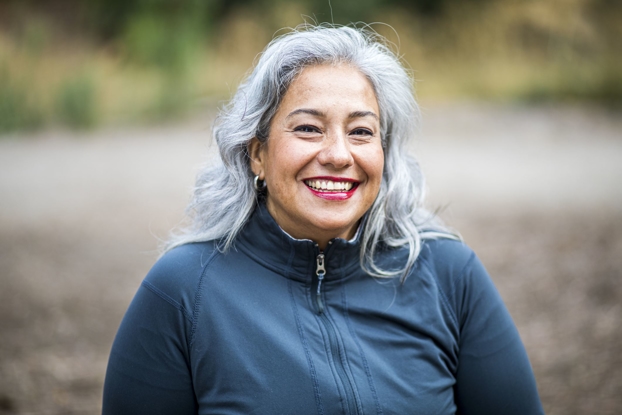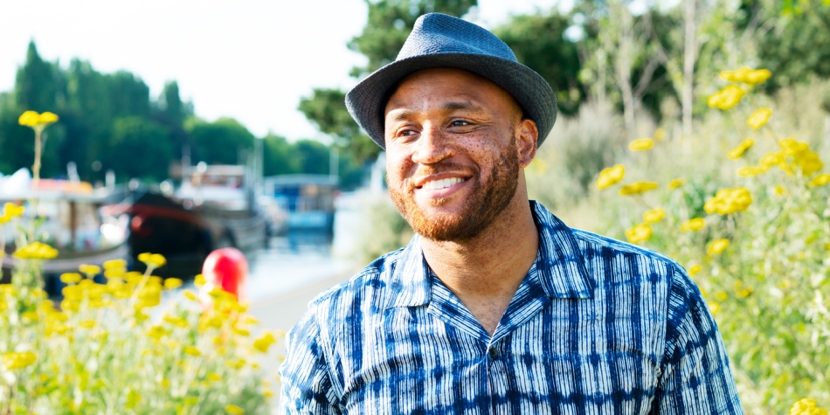Psst … ladies, these are the secrets to healthy aging
- Category: Women's Health, Exercise, Healthy Aging
- Posted On:

You want to be your best as you get older. What can you do to prevent health issues and feel healthy and well? You can take actions to promote healthy aging.
As we get older, we’re at a higher risk of developing health problems. Many health issues are caused by simple wear and tear on our bodies over the years. Others can be caused by the choices we make, including how active we are and what foods we eat.
The good news? No matter what choices you’ve made so far, you can make lifestyle changes now that will positively impact your health for the rest of your life. Consider this article from our University Medical Center New Orleans team your user’s guide to healthy aging.
What ‘healthy aging’ means
You’ve heard the phrase “healthy aging,” but what does it mean exactly to age in a healthy way? It’s pretty simple, actually.
Your risk of certain health conditions, such as cardiovascular disease and breast cancer, increases as you get older. That’s why you often see advanced age listed as a risk factor.
That doesn’t mean, though, that developing those conditions is inevitable. Older adults, including older women, can survive and thrive by tweaking their daily routine to incorporate healthier habits.
When you practice a healthy lifestyle, you’re more likely to feel at your best, mentally, physically and emotionally. That’s the very definition of healthy aging.
Women also have an added incentive to aim for healthy aging! American women live around six years longer than men, with an average life expectancy of 79 years.
The secrets to healthy aging aren’t quite so secret
In our headline, we alluded to some secrets to healthy aging. The truth is, there aren’t really any secrets! The principles of healthy living, which you’ve probably read about before, are also the principles of healthy aging.
Still aren’t sure quite where to begin? These five steps are a good starting point:
1. Choose healthy foods. Eating a healthy diet can go a long way toward helping you stay healthy as you age. Fill your plate with plenty of antioxidant-rich fruits and vegetables, whole grains, and lean protein. Choose whole foods whenever possible and limit your intake of processed foods, which often contain unhealthy additives like added sugar, saturated fat and excess sodium. Certain nutrients, like calcium and vitamin D, can help you stay active and healthy, so if you aren’t sure whether you’re getting enough of specific vitamins, talk with your medical provider about your diet and health needs.
2. Have regular checkups. An annual visit with your primary care provider, along with visits to any specialists, if necessary, can help you keep an eye on your health. Your provider can order tests to look at health markers like your cholesterol levels, along with helping you manage medical conditions, such as high blood pressure or heart disease. During an annual checkup, your provider can also help ensure you’re getting the age-appropriate screenings and vaccinations you need.
3. Keep moving your body. If you haven’t always been good about getting regular exercise, it’s not too late to get started! Aim to get at least 150 minutes of moderate-intensity physical activity each week by briskly walking or doing other activities you enjoy that get your heart pumping. You should also include strength training movements, using weights or your body weight, to help you maintain muscle mass as you get older. The benefits of exercise go beyond maintaining a healthy weight—activity can also strengthen your bones and make you less likely to fall.
4. Stay socially active. Did you know that loneliness can be as dangerous for older adults as not getting enough exercise or smoking? It can increase the risk of mental health issues such as depression and anxiety, along with issues affecting your physical health. Spending time with family and friends is important. Socializing helps keep your mind and body healthy and active, and it decreases the risk of loneliness and isolation.
5. Exercise your brain, too. Being physically active is good for your brain, but you can also take other steps to benefit your brain function. You can keep your brain engaged by trying new activities or learning something, by taking up a hobby, for example. Your daily game of Wordle keeps your mind active, as does crossword puzzles and jigsaw puzzles. Anything you can do to challenge your brain will benefit it in the long run.
University Medical Center New Orleans offers care for women at all ages and stages of life. Let us help you age in a healthy way!


